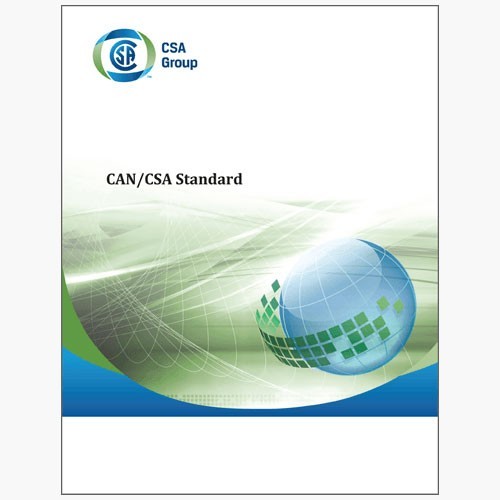TOLL FREE · 1-888-361-0003 Our Customer Support is ready to help!

Formats Available:
Online,
Print
Product Overview
CAN/CSA-ISO/IEC 15457-3-09 (R2014)
CSA Group Identification cards - Thin flexible cards - Part 3: Test methods (Adopted ISO/IEC 15457-3:2008, second edition, 2008-03-01)
Total
As low as
$181.00
More About This Product
Description
Preface Standards development within the Information Technology sector is harmonized with international standards development. Through the CSA Technical Committee on Information Technology (TCIT), Canadians serve as the Canadian Advisory Committee (CAC) on ISO/IEC Joint Technical Committee 1 on Information Technology (ISO/IEC JTC1) for the Standards Council of Canada (SCC), the ISO member body for Canada and sponsor of the Canadian National Committee of the IEC. Also, as a member of the International Telecommunication Union (ITU), Canada participates in the International Telegraph and Telephone Consultative Committee (ITU-T). This Standard supersedes CAN/CSA-ISO/IEC 15457-3-04 (adoption of ISO/IEC 15457-3:2002). At the time of publication, ISO/IEC 15457-3:2008 is available from ISO and IEC in English only. CSA will publish the French version when it becomes available from ISO and IEC. Scope Thin flexible cards (TFC), the subject of this International Standard, are used to automate the controls for access to goods or services such as mass transit, highway toll systems, car parks, vouchers, stored value, etc. For these applications, data can be written and/or read by machines using various recording techniques such as magnetic stripe, optical character recognition (OCR), bar code, etc. This part of ISO/IEC 15457 specifies the test methods and procedures required to carry out measurements of the magnetic stripe and encoding characteristics of thin flexible cards. Many of the standard methods available for checking physical properties of base materials are intended to be applied to samples cut from continuous material or large sheets. However, all test methods given herein, unless explicitly stated otherwise, apply to finished cards. The test methods described are to be performed on separate samples. It is not intended that any individual card should pass through more than one test procedure, unless explicitly stated. Acceptance criteria are not covered by this part of ISO/IEC 15457.
Preface Standards development within the Information Technology sector is harmonized with international standards development. Through the CSA Technical Committee on Information Technology (TCIT), Canadians serve as the Canadian Advisory Committee (CAC) on ISO/IEC Joint Technical Committee 1 on Information Technology (ISO/IEC JTC1) for the Standards Council of Canada (SCC), the ISO member body for Canada and sponsor of the Canadian National Committee of the IEC. Also, as a member of the International Telecommunication Union (ITU), Canada participates in the International Telegraph and Telephone Consultative Committee (ITU-T). This Standard supersedes CAN/CSA-ISO/IEC 15457-3-04 (adoption of ISO/IEC 15457-3:2002). At the time of publication, ISO/IEC 15457-3:2008 is available from ISO and IEC in English only. CSA will publish the French version when it becomes available from ISO and IEC. Scope Thin flexible cards (TFC), the subject of this International Standard, are used to automate the controls for access to goods or services such as mass transit, highway toll systems, car parks, vouchers, stored value, etc. For these applications, data can be written and/or read by machines using various recording techniques such as magnetic stripe, optical character recognition (OCR), bar code, etc. This part of ISO/IEC 15457 specifies the test methods and procedures required to carry out measurements of the magnetic stripe and encoding characteristics of thin flexible cards. Many of the standard methods available for checking physical properties of base materials are intended to be applied to samples cut from continuous material or large sheets. However, all test methods given herein, unless explicitly stated otherwise, apply to finished cards. The test methods described are to be performed on separate samples. It is not intended that any individual card should pass through more than one test procedure, unless explicitly stated. Acceptance criteria are not covered by this part of ISO/IEC 15457.
